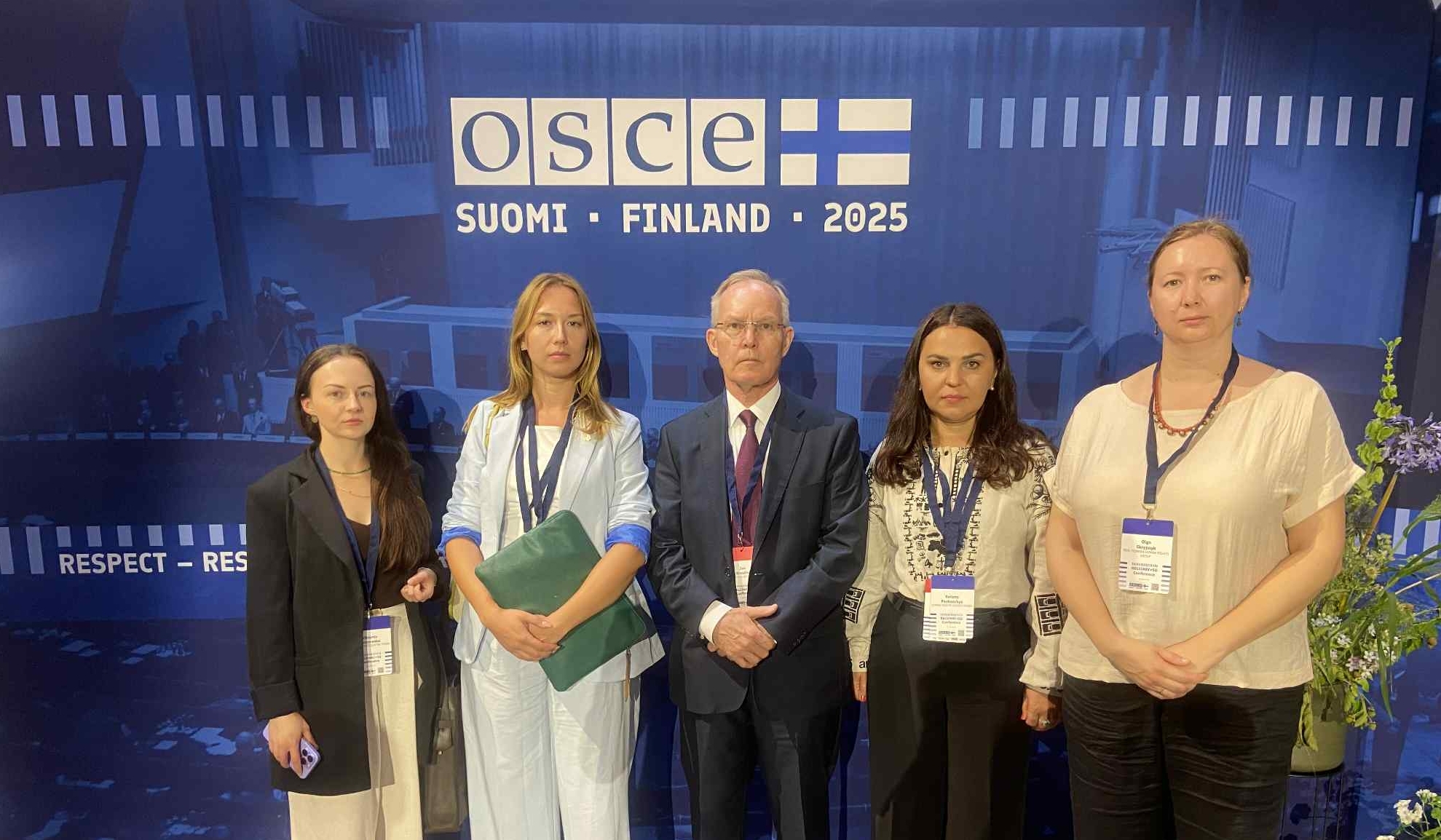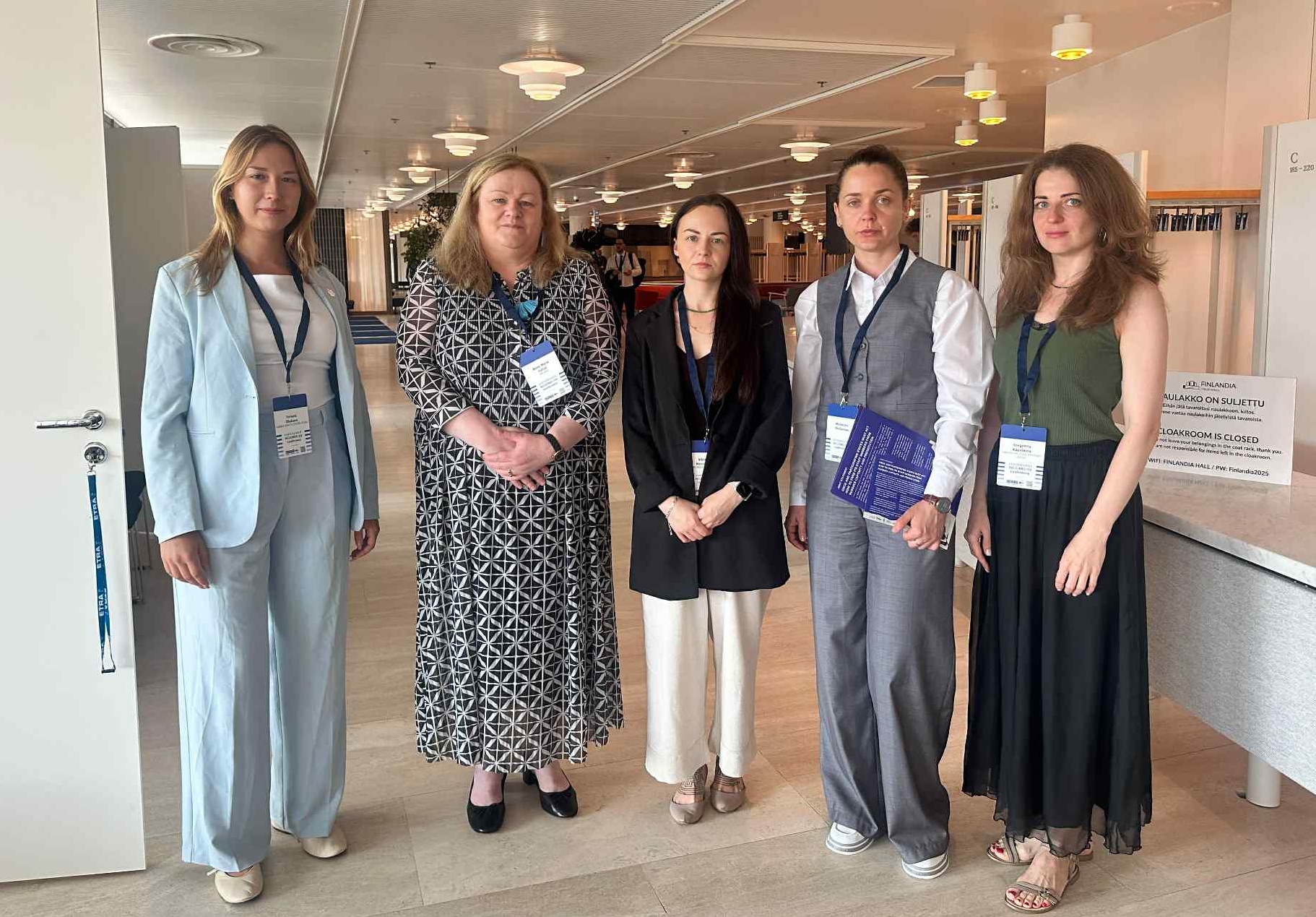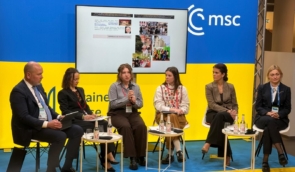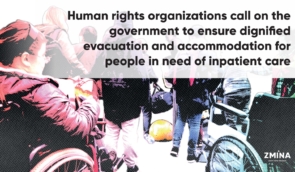Human rights defenders met with the OSCE Representative on Freedom of the Media to discuss the persecution of journalists in the occupied territories
Within the framework of the Helsinki+50 Conference, Ukrainian human rights defenders met with Ambassador Jan Braathu, the OSCE Representative on Freedom of the Media. The main topic of discussion was the systematic persecution of journalists and threats to freedom of speech in the territories of Ukraine temporarily occupied by Russia.
 Photo: Meeting with Ambassador Jan Braathu, the OSCE Representative on Freedom of the Media
Photo: Meeting with Ambassador Jan Braathu, the OSCE Representative on Freedom of the MediaOn the Ukrainian side, the meeting was attended by representatives of the Human Rights Centre ZMINA — the Head of the Board, Tetiana Pechonchyk, International Advocacy Manager, Tetiana Zhukova, Project Manager, Viktoriia Nesterenko, and the Head of the Crimean Human Rights Group, Olha Skrypnyk.
The participants highlighted the alarming situation regarding media freedom in the temporarily occupied Crimea and other occupied territories of Ukraine. According to Tetiana Pechonchyk, the persecution of the media is part of the Kremlin’s strategy to establish complete control over the information space in the occupied territories. The goal is to destroy independent voices and gain complete control over the population through propaganda.
Currently, Russia holds 17 Crimean journalists in detention, most of whom are citizen journalists who actively reported on the situation on the peninsula after its occupation. There are also documented cases of journalists being imprisoned in other temporarily occupied territories.
Ukrainians suffer from inhumane treatment, torture, isolation and denial of medical care in prisons in the occupied territories and in Russia. The tragic death of Ukrainian journalist Viktoriia Roshchyna as a result of torture in Russian captivity was also mentioned — yet another proof of the deadly risks faced by journalists amid Russia’s repressive campaign.
Of all the journalists, only Vladyslav Yesypenko was released, but not because of humanitarian efforts or negotiations, but because he had served his entire prison sentence. This shows that Russia does not want to include journalists on the exchange lists and that this process is currently at a standstill. That is why it is necessary to actively advocate for journalists by writing letters of support, becoming their mentors, making public statements, and demanding their release.
Human rights defenders called on the OSCE Representative on Freedom of the Media to actively respond to violations of freedom of speech in the occupied territories and the persecution of journalists by the Russian Federation, as well as to support efforts aimed at securing their release and protecting media freedom in the context of armed aggression.
They also discussed the Crimean Human Rights Group’s research on incitement to genocide and war of aggression in the Russian media space. According to the analysis, Russian media actively spread incitement to violence and the complete destruction of the Ukrainian nation, which is a gross violation of international law and demonstrates the informational dimension of Russia’s aggression against Ukraine.
 Photo: Meeting with Ambassador Anne-Marie Callan, Permanent Representative of Ireland at the OSCE
Photo: Meeting with Ambassador Anne-Marie Callan, Permanent Representative of Ireland at the OSCEIn addition, representatives of Ukrainian organizations held side events “Crimea: 11 years of occupation – restoring justice, reinforcing OSCE commitments” and “The future of the Helsinki Final Act: restoring justice and ensuring Russia’s accountability“, as well as a series of bilateral meetings with diplomats and officials from Ireland, the United Kingdom, Switzerland, the United States, the Czech Republic and Norway.
For information: The Helsinki+50 Conference marked the 50th anniversary of the Helsinki Final Act, a foundational document for peace, human rights, and security in Europe, signed in 1975. The conference brought together international experts, civil society, and policymakers to reflect on the legacy of the Helsinki Process and to address urgent threats to the principles it enshrined. In light of Russia’s aggression against Ukraine and its systematic violations of human rights, the Helsinki+50 platform served as a space to reaffirm the collective commitment to justice, accountability, and the protection of human dignity across the OSCE region.
If you have found a spelling error, please, notify us by selecting that text and pressing Ctrl+Enter.















